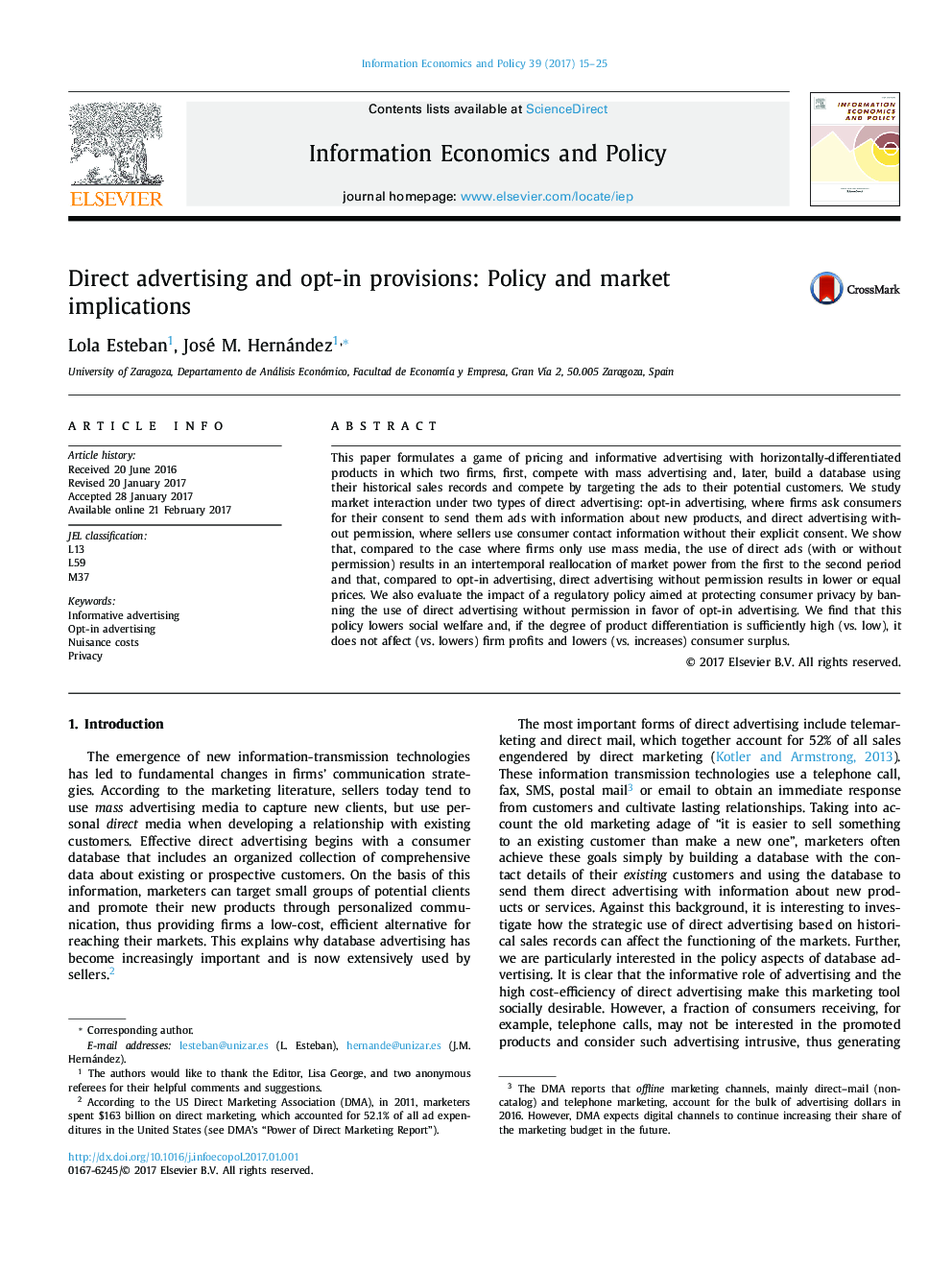| کد مقاله | کد نشریه | سال انتشار | مقاله انگلیسی | نسخه تمام متن |
|---|---|---|---|---|
| 5075654 | 1477171 | 2017 | 11 صفحه PDF | دانلود رایگان |
- We analyze price-advertising competition with horizontally differentiated products when firms can use mass advertising, opt-in direct advertising or direct advertising without permission.
- Compared to opt-in advertising, the use of direct advertising without permission results in lower or equal prices and higher or equal profits for firms.
- A fraction of consumers refuse the offer to receive opt-in advertising and we prove that this fraction is, from a social perspective, too large.
- A regulatory policy banning the use of direct advertising without permission in favor of opt-in advertising lowers social welfare and, with high product-differentiation, consumer surplus.
This paper formulates a game of pricing and informative advertising with horizontally-differentiated products in which two firms, first, compete with mass advertising and, later, build a database using their historical sales records and compete by targeting the ads to their potential customers. We study market interaction under two types of direct advertising: opt-in advertising, where firms ask consumers for their consent to send them ads with information about new products, and direct advertising without permission, where sellers use consumer contact information without their explicit consent. We show that, compared to the case where firms only use mass media, the use of direct ads (with or without permission) results in an intertemporal reallocation of market power from the first to the second period and that, compared to opt-in advertising, direct advertising without permission results in lower or equal prices. We also evaluate the impact of a regulatory policy aimed at protecting consumer privacy by banning the use of direct advertising without permission in favor of opt-in advertising. We find that this policy lowers social welfare and, if the degree of product differentiation is sufficiently high (vs. low), it does not affect (vs. lowers) firm profits and lowers (vs. increases) consumer surplus.
Journal: Information Economics and Policy - Volume 39, June 2017, Pages 15-25
